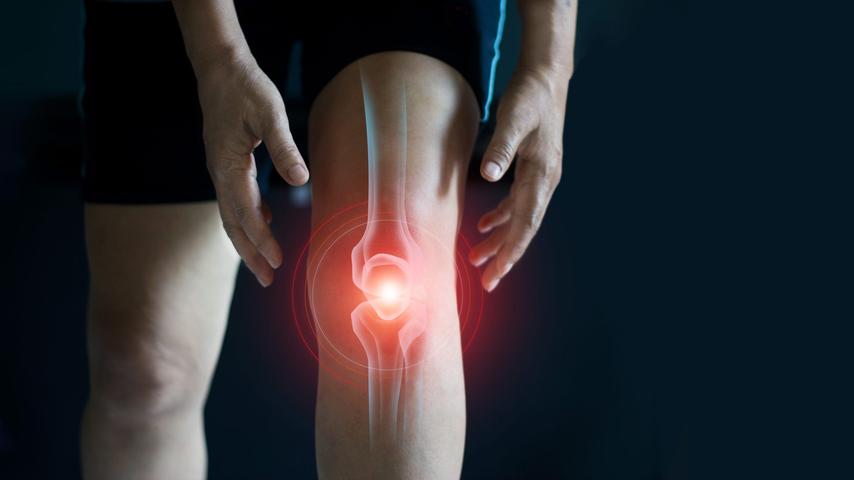Bone and Joint Pain: Symptoms, Causes, Diagnosis and Treatment

Bone and Joint Pain
The agility of the human body is based on its bone strength and flexibility in its joints. The complex human musculoskeletal system is more than a framework – a click here and clack there can mount extreme pressure on joints and cause intense pain in these ‘fragile structures.’ If you are experiencing joint pains, even sporadically – it’s time you take charge of your bone health.
Joint and bone pain can either be experienced at one particular joint or felt simultaneously in various parts of the body. The major contributing factors behind intense pain in bone joints could be many - including slowing down metabolism with age, chronic bone-related conditions, stress, and depleting calcium levels in women, especially post-menopause.
What Causes Bone and Joint Pains?
Joint and bone pain causes can be due to various factors, including injury, inflammation, overuse, or underlying medical conditions. Injuries like fractures and sprains, conditions like arthritis, and infections can all contribute to discomfort in the bones and joints. Understanding the specific bone pain causes are essential for effective diagnosis and treatment.
Arthritis: Osteoarthritis and Rheumatoid Arthritis, often affecting wrists, hips, hands, and knees
Bursitis: Inflammation of the soft pad-like structures around the joints
Gout: Build-up of uric acid in joints
Tendinitis: Swelling of tendons
Fibromyalgia: Extreme tenderness in joints
Osteoporosis: Porous bones due to lack of strength
Chondromalacia: Damage to the cartilage in the kneecap Infections affecting bones and joints
Obesity
Injuries due to sudden fall or accident
Calcium and deficiency of various nutrients and minerals
What Are The Symptoms of Joint Pains?
When you suddenly experience acute pain in multiple joints, it's often due to inflammation, gout, or the beginning of a chronic joint issue. If the bone pain symptoms continues over time, it's usually linked to conditions like osteoarthritis, inflammatory disorders (like rheumatoid arthritis), or, in children, juvenile idiopathic arthritis. Joint pains often present with the following symptoms:
- Swelling
- Stiffness
- Difficulty and pain while moving, bending, and stretching the arms legs
- Loss of motion
- Redness on the skin around joints that is warm touch and swelling would require immediate medical attention
How Is Bone and Joint Pain Diagnosed?
There are many reasons behind bone and joint pains. The diagnosis aims to identify the underlying cause before starting the treatment plan for alleviating pain.
Physical examination is the first step, where your doctor would understand the precise location of the pain, intensity, and other associated symptoms.
Blood work is often recommended to check for vitamin deficiencies, infections, and other disorders that might disrupt bone health. A urine study is prescribed if the doctor suspects abnormalities in the bone marrow or a case of bone cancer.
Advanced imaging tests, including X-rays, MRI, CT scan, Bone Scans, Arthrography, Discography, Doppler Ultrasound, and Peripheral Bone Density Testing would help further evaluate and identify injuries, lesions, or even tumours within the bones.
How Is Bone and Joint Pain Treated?
If not addressed on time, joint pains can turn excruciatingly painful and chronic and interfere with the quality of your life. The Department of Orthopedics care at Gleneagles Hospital Mumbai, equipped with state-of-the-art infrastructure, ensures accurate diagnosis and the best orthopedic care in India. The department offers highly advanced, minimally invasive surgical procedures, including arthroscopy, arthroplasty, and total knee and hip replacement.
However, let us assure you that not all joint pains would require surgical intervention. The team of extensively trained doctors and paramedical staff will assist you at every juncture till the treatment is complete, and you are free from pain.
The following protocol goes into treating joint pains:
- Pain medications
- Nutritional supplements
- Physiotherapy and rehabilitation
- Changes in lifestyle and eating habits
- Minimally invasive procedures
When To Visit Doctor?
Do not delay your doctor visits. Seek medical help if the pain is disrupting your daily activities. If you are experiencing joint pains along with fever, sudden loss of weight, or changes in gait – ask for urgent medical intervention.
Book an appointment with our doctors at the Department of Orthopaedics & Joint Replacements.










